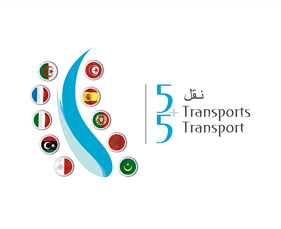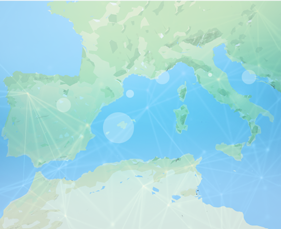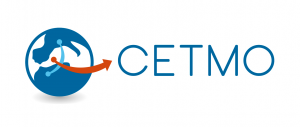CETMO – The Centre for Transportation Studies
GTMO 5+5
 The Group of Transport Ministers for the Western Mediterranean (GTMO 5+5) aims to promote cooperation on transport in the Western Mediterranean and to contribute to the Euro-Mediterranean Partnership. The members of GTMO 5+5 are the Transport Ministers of the ten countries in the region (Algeria, France, Italy, Libya, Malta, Mauritania, Morocco, Portugal, Spain and Tunisia). The European Commission’s Directorate-General for Mobility and Transport, the General Secretariat of the Arab Maghreb Union (AMU) and the Secretariat of the Union for the Mediterranean (UfM) also participate as observers. CETMO performs the function of Technical Secretariat.
The Group of Transport Ministers for the Western Mediterranean (GTMO 5+5) aims to promote cooperation on transport in the Western Mediterranean and to contribute to the Euro-Mediterranean Partnership. The members of GTMO 5+5 are the Transport Ministers of the ten countries in the region (Algeria, France, Italy, Libya, Malta, Mauritania, Morocco, Portugal, Spain and Tunisia). The European Commission’s Directorate-General for Mobility and Transport, the General Secretariat of the Arab Maghreb Union (AMU) and the Secretariat of the Union for the Mediterranean (UfM) also participate as observers. CETMO performs the function of Technical Secretariat.
The GTMO 5+5 is a group for cooperation in transport at the highest level and was created in 1995 in Paris, where the meeting was held to establish the group. At the Ministerial Conference in Tunis in March 2007, the ministers adopted and signed a protocol for cooperation with the aim of strengthening the group’s institutional structure.
The GTMO 5+5 Presidency rotates among the countries and is transferred at the Ministerial Conference, which is generally held every two years. A work programme is proposed and implemented by the Technical Secretariat and the group of experts based on the conclusions of the Ministerial Conference. The group of experts is made up of the national coordinators of the ministries in charge of transportation and meets twice a year to monitor implementation of the work programme.
GTMO 5+5 activities are organized based on the following priority areas for cooperation defined in the Tunis Protocol:
- Enhancing a database and methods allowing for regular identification of priorities in the Western Mediterranean based on work carried out by CETMO.
- Definition and development of a multimodal transport network in the Western Mediterranean, with special emphasis on links with trans-European networks and networks in neighbouring countries.
- Search for advantageous infrastructure-financing modes from financing partners.
- Exchange and transport facilitation, with special emphasis on the transport chain as a whole.
- Upgrading transport-related companies, from the perspective of setting up the free-trade area.
- Development of research on transport in the region through the involvement of Euro-Mediterranean university networks and the promotion of Maghreb countries’ participation in community research programmes.
- Identifying studies on transport developments in the region and the search for financing to implement them.
- Reinforcing transport safety and security in the region.
To date, more than 20 meetings have been held of the GTMO 5+5 group of experts. The Ninth Conference of Transport Ministers of the GTMO 5+5 was held in Mauritania in December 2018.
Presentations
- 2018 – Report on GTMO 5+5 Activities 2014-2018 Period Portuguese Presidency (ENG)
- 2017 – Trade Between the European and Maghreb Countries of the GTMO 5+5 and Its Relationship with Maritime Traffic (ENG)
- 2017 – Review and update of the GTMO 5+5 Multimodal Transport Network and its Core Network (ENG)
- 2017 – Future Infrastructure in the Maghreb (ENG)
- 2014 – Horizontal actions of management TMM Working days (ENG)
- 2013 – North-south maritime cargo transport flows of the gtmo 5+5 countries (ENG)
- 2013 – Maritime passenger flows between the two shores of the (ENG)
- 2013 – Foreign trade relations of gtmo 5+5 countries (in terms of volume) (ENG)
- 2013 – Foreign trade relations of gtmo 5+5 countries (in terms of economic value) (ENG)
- 2013 – Air passenger flows in the gtmo 5+5 countries.pdf (ENG)
Ministerial Conferences of the GTMO 5+5
Euro-Mediterranean cooperation
 CETMO’s historical objectives include the promotion of Euro-Mediterranean cooperation in the field of transport and logistics. With this objective in mind, CETMO plays a dynamic, proactive role in monitoring projects and proposing ideas for cooperation in the transport sector as part of the European Union’s neighbourhood policy for the countries of the Southern Mediterranean. Furthermore, CETMO has signed memoranda of understanding with the Secretariat of the Union for the Mediterranean and the Secretariat of the Arab Maghreb Union.
CETMO’s historical objectives include the promotion of Euro-Mediterranean cooperation in the field of transport and logistics. With this objective in mind, CETMO plays a dynamic, proactive role in monitoring projects and proposing ideas for cooperation in the transport sector as part of the European Union’s neighbourhood policy for the countries of the Southern Mediterranean. Furthermore, CETMO has signed memoranda of understanding with the Secretariat of the Union for the Mediterranean and the Secretariat of the Arab Maghreb Union.
Its extensive knowledge of the region, within its field of expertise, has allowed CETMO to develop a series of important projects at regional scale.
The Logismed Initiative
The Logismed initiative consists of a regional project whose ultimate goal is to promote modern logistics in the countries of the Southern Mediterranean. It is made up of two components. The first is known as Logismed Hard and involves creating the infrastructure needed to develop modern logistics, in the form of logistics platforms. The second is known as Logismed Soft and aims to promote and develop the professional logistics skills required in each country and platform.
The Logismed initiative was launched in 2010 by the European Investment Bank (EIB). CETMO was commissioned by the EIB, through two technical assistance projects, to collaborate on the implementation of Logismed Soft (2014).
Logismed Soft is divided into three components:
1. Coordination, promotion and definition of logistics platforms.
One of the functions of this component is to ensure that all the parts of the project are coordinated and coherent. It also seeks to involve local stakeholders from the public and private sectors in the development of logistics platforms through information and awareness-raising activities, as well as promoting networking. Finally, a guide to designing and implementing logistics platforms will be drafted to help define the features required by modern platforms, develop the range of services they should offer users and identify the steps and aspects that need to be taken into account during the implementation phase.
2. Logismed training activities.
This component consists of implementing a series of training activities aimed at increasing competitiveness in the Mediterranean logistics sector. This increased competitiveness will be achieved through the creation of high-quality logistics training programmes offered by the national institutions themselves and an increase in the number of qualified personnel during project implementation.
3. Logismed observatory.
The goal of this third component is to create a regional transport and logistics observatory. To achieve this, a series of technical indicators for sector operability and characterization will be identified to analyse sector status and evolution. This observatory will be created with the cooperation of the countries, whose data collection and processing work is fundamental.
MEDA TEN-T
The main objective of the MEDA TEN-T (Mediterranean and Trans-European Networks for Transport) was to increase knowledge about transport and the connectivity of transport networks in the Mediterranean region through the creation of a network of transport experts in the entire Mediterranean basin. The gradual establishment of a shared information system would make it possible to create a decision-making support system and a shared action plan.
This two-year project (2004-2006) was implemented by a consortium of experts from different organizations and ministries of the European countries in the Mediterranean region and the Maghreb countries (NESTEAR, NTUA, ICCR, DITS, CETMO, TEDRC, DRTPC, KHAN Consultants, SNED, ARDES, GMC, SITRAM, ISOTHEC, Ministry of Transport and Communications of Malta, Dar El Omran).
The MEDA TEN-T did research in the following areas: gaining a general overview of the system of transport services and infrastructure in the Mediterranean region; connectivity and interoperability among Mediterranean countries and between the Mediterranean region and the rest of the European Union; and facilitating networking to create a free-market Euro-Mediterranean region. Research is now being done to extend the TEN-T network to all MEDA countries by strengthening maritime connections (in particular, through implementation of the Motorways of the Sea concept), including the air network, and defining criteria for evaluating operations and environmental impact.
DESTIN
The DESTIN project (Defining and Evaluating a Strategic Transport Infrastructure Network in the Western Mediterranean) was carried out between 2003 and 2005 by a Euro-Maghreb consortium (NESTEAR, MCRIT, IRAT, SNED, KHAN Consultants and ETIC) and coordinated by CETMO under the scientific and financial auspices of the European Commission’s Directorate-General for Transport and Energy. The project also had the support of a group of experts, made up of representatives of the Ministries of Transport of the Western Mediterranean, whose role was to verify whether the tools developed by and through DESTIN were sustainable and practicable, and to evaluate the countries’ specific needs and difficulties. As a research project, DESTIN’s main objective was to use SWOT analysis to examine the different Mediterranean third-party countries’ interoperability with each other and with European countries. Its objectives also included applying sustainable, operational methods and criteria to identify and evaluate transport networks in the Western Mediterranean, and developing a system that would help establish priorities in the context of extensions to the Trans-European Transport Network (TEN-T).
REG-MED
REG-MED is a thematic network created within the European Union’s Fifth Framework Programme on R&D and coordinated by the CETMO. Its fundamental objective was in-depth analysis and discussion of the regulatory framework with a view to facilitating goods transport in the Mediterranean.
This joint analysis and discussion took place at four seminars held in 2003 and 2004, when the essential aspects of a transport chain were addressed. These seminars were attended by members of private-sector associations and top civil servants from the Maghreb, EU Member States, the European Commission and several international institutions. A scientific committee made up of representatives of European organizations and Maghreb experts supported CETMO in its tasks of identifying the matters to be discussed, organizing the seminars and ratifying the final conclusions and recommendations of REG-MED.
In practice, the network made it possible to analyse the main obstacles inhibiting international goods transport in the Mediterranean. It also provided a chance to review the initiatives under way in EU and Mediterranean partner countries to overcome the obstacles. Furthermore, it offered the opportunity to propose measures to facilitate international goods flows in the region and to evaluate how international agreements and convergence measures with respect to the EU regulatory framework can contribute towards reducing these obstacles.
Official documents and MoU’s
UNECE
 Since its creation, CETMO has been a permanent observer of the United Nations through the UNECE (United Nations Economic Commission for Europe). CETMO has also been recognized as a UNECE-linked centre since 1988.
Since its creation, CETMO has been a permanent observer of the United Nations through the UNECE (United Nations Economic Commission for Europe). CETMO has also been recognized as a UNECE-linked centre since 1988.
CETMO participates actively on the Inland Transport Committee (ITC) and specific working groups. CETMO issues regular reports on the status of transport infrastructure and services in the Western Mediterranean.
Within the framework of the ITC, CETMO makes recommendations for action to improve infrastructure and transport development.
In 2018, CETMO and UNECE signed a Memorandum of Understanding to strengthen cooperation to boost intermodal transport in Western Mediterranean.
Official documents and MoU’s
Subscribe to our newsletter
Stay updated about all news and events
